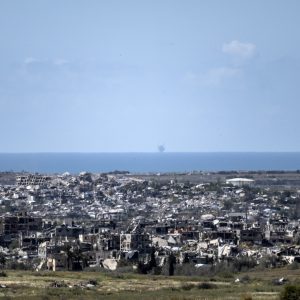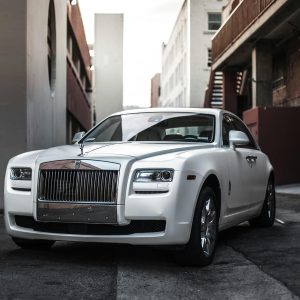Kashmir lawmakers demand alcohol ban as public anger rises
SRINAGAR, Indian-administered Kashmir (MNTV) – A political consensus is building in Indian-administered Jammu and Kashmir in favor of banning alcohol, as public frustration mounts over the increasing presence of liquor outlets in the region.
Lawmakers from across the political spectrum are pushing for prohibition in this Muslim-majority territory, citing cultural sensitivities and community safety concerns.
Jammu and Kashmir is part of a longstanding dispute between India and Pakistan, both of which claim the region in full but control different parts.
India currently administers the larger portion, including the Kashmir Valley—where opposition to alcohol is deeply rooted in Islamic tradition and local custom.
According to a detailed report by Indian news website Scroll.in, the latest round of protests began after the first-ever liquor store opened in the southern town of Qazigund in May 2023.
The shop’s presence prompted a shutdown of the entire local market. Though the shop remained open, residents say it has quickly become a source of public disorder.
“It’s become a nuisance,” said Muhammad Shafi Wani, president of the Qazigund Traders’ Association, which represents more than 1,500 local businesses.
“Women and schoolgirls no longer feel safe passing by. We find empty liquor bottles in our playgrounds and graveyards.”
Abdul Majeed Bhat, a legislator from the opposition National Conference and MLA from Anantnag West—where Qazigund is located—says he is inundated with complaints. “People curse me,” he told Scroll.in.
“They say if I can’t get it shut, I’m failing as a representative.”
Uri town along the borders with Pakistan-administered Kashmir has witnessed similar protests, reflecting the widespread discomfort with alcohol consumption in the Kashmir Valley.
While the issue has deep historical and religious roots, the mood has noticeably shifted since 2019, when India revoked Jammu and Kashmir’s special constitutional status and divided it into two federally governed union territories.
Race for opening liquor shops
In the five years since, the region has seen the opening of at least 10 new liquor shops, even as protests and public unease have grown. The administration under the Lieutenant Governor—appointed by New Delhi—has drawn criticism for being out of step with the cultural and religious values of the region’s predominantly Muslim population.
Since the formation of an elected assembly in November 2024, resistance to alcohol sales is now gaining formal political expression. In April, three lawmakers from different parties plan to introduce private members’ bills calling for a complete ban on alcohol in the union territory.
The movement began in February when Mir Mohammad Fayaz, a legislator from the Peoples’ Democratic Party (PDP), proposed the ban. He was quickly joined by Ahsan Pardesi of the National Conference and Sheikh Khursheed Ahmad of the Awami Ittehad Party. “Jammu and Kashmir is a Muslim-majority region,” Pardesi said. “If Bihar can ban alcohol, why not us?”
Observers say this unified front on alcohol prohibition reflects a broader shift in political strategy post-2019. “It’s no longer safe for local politicians to raise slogans for right to self-determination or challenge New Delhi directly,” said a political analyst in Srinagar.
“But calling for a liquor ban resonates locally without appearing politically rebellious.”
The aversion to alcohol in Kashmir is not new. In the late 1980s, pro-independence groups banned the sale and consumption of liquor, declaring it a threat to local culture. Some shops were even attacked. Although a few outlets reopened in tourist areas in subsequent decades—under tight security—the industry remained marginal.
That changed dramatically after August 5, 2019, when the Indian government revoked Article 370 of the Constitution, stripping the region of its limited autonomy. Within a year, authorities announced plans to open 183 new liquor shops across the union territory—116 in Jammu and 67 in Kashmir.
Ten of these outlets have already opened in the Valley, many during a period when the region was under direct rule from New Delhi and its political leadership under house arrest or in detention. “It shows how insensitive the administration was to local sentiment,” said the Srinagar-based political observer.
Now that elected leaders are back, the demand for prohibition is being raised openly—and with renewed intensity.
Local cultural values violated
Recent incidents involving drunk tourists have added fuel to the fire. In June 2024, a video of visitors drinking on a shikara boat in Dal Lake—Kashmir’s iconic waterbody—went viral. Police arrested two individuals after outrage erupted online.
That prompted a strong statement from the Muttahida Majlis-e-Ulama, a coalition of Islamic seminaries and clerics led by Mirwaiz Umar Farooq.
“Kashmiris are known for their hospitality,” it read, “but such un-Islamic and unethical behavior will not be tolerated in the land of saints and Sufis.”
Earlier this year, traders in Srinagar’s Lal Chowk erected a small sign urging tourists to “respect local traditions” and avoid alcohol or drugs. The police, operating under the Lieutenant Governor’s office, promptly removed it—without explanation—triggering backlash from civil society and clerical groups.
The administration may be reluctant to accept a prohibition bill due to its financial implications. Government revenue from alcohol has nearly tripled in recent years—from 8.44 billion Indian rupees (approx. $100 million) in 2017–18 to nearly 25 billion Indian rupees (over $300 million) in 2023–24.
Still, lawmakers argue that public wellbeing should come first. “Are we supposed to trade our children’s future just for revenue?” asked MLA Abdul Majeed Bhat.
Yet the road ahead is uncertain. Even if the bills pass the assembly, they will require the assent of the Lieutenant Governor—who may forward them to India’s President for consideration.









